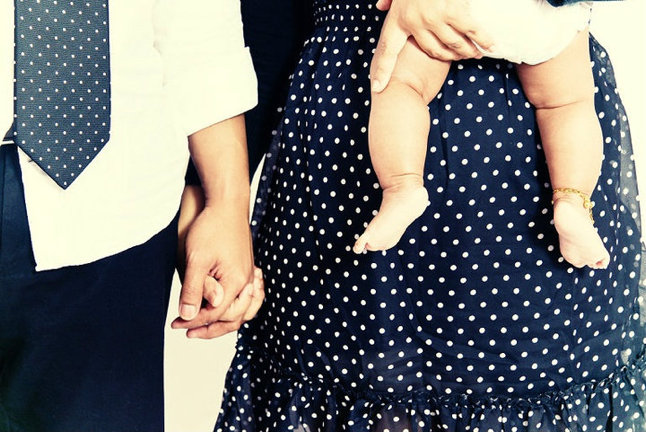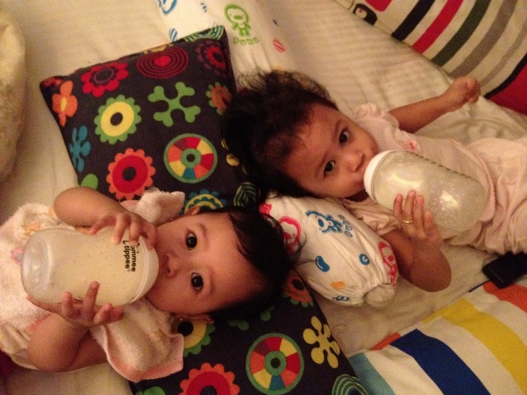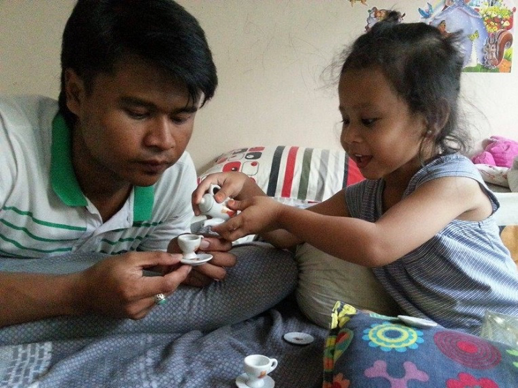We all know the unconditional love of a mother knows no bounds and parenting is regarded as the toughest job in the world. Even though there is no perfect formula for the best parenting style, it is sometimes interesting and beneficial to hear from other parents’ perspectives in bringing up their kids.
In this article, stay-at-home mum Tuty shares with Wonder Years how she mothers her two precious daughters.
When my husband and I were expecting, we had no idea how it felt to be a parent and what kind of parents we would become.
Both of us came from different upbringings. While I had the freedom of expression and self-discovery with supervision from my parents, he had little freedom of expression and corporal punishments for disobedience.
Our childhood experiences shaped who we are today and together we share what we valued as a child and agreed to improve other methods to suit how we bring up our children.

When & Why do we need to have a parenting style?
Children are gifted to us with minds like a blank canvas. It is the responsibility and duty of parents to nurture and provide guidance to the children. The early experiences in children’s lives are what shape them to be masterpieces in their adult life. Having a parenting style sets the foundation of how we nurture and guide our children as well as to impart moral and family values to them.
What is our parenting style?
Over the years, our parenting style adjusted and shifted according to our daughters’ growth and we apply what we deem fit for that age period. But no matter the years, we always practice the following attributes.
Proper Languages
Starting from infancy, we avoided speaking to them in ‘baby languages’, avoided changing and duplicating the phonics of words (e.g. it was always ‘milk’ and not ‘milk-milk’ or ‘mi-milk’). And when they grow older and can understand better, we taught proper names of body and private parts.
For example, girls have vagina and boys have penis. It was not ‘vajayjay’ nor ‘wee-wee’. This was important to us so that we do not have to correct them when they are much older. In our experience, this helps because our children speak properly and pronounced words clearly when they are first able to talk.
Logical, Sensible Reasons
Children must learn that not everything will work out according to them. When we faced a situation or disallowed a request, we took time to explain to the children, with age-appropriate advice, the logical and sensible reasons why we came to that decision. Whether it was because the playground had poor lighting at night that they might trip or swimming when it rains is dangerous because we can get struck by lightning, we made sure that the children understand. We feel that it is unnecessary to threaten them or instill fear, in hopes that the children will obey.
For example: “You cannot play at the playground. It had poor lighting, you may trip because you cannot see clearly.” instead of “You cannot play at the playground. It’s dark and there are spirits loitering around at playgrounds.”
Cause & Effect
It is our job to protect the children from themselves when they are engaging in an activity that puts them in danger or might get them into trouble. We explain to them that their actions have a reaction in this world. For example, they know to dry themselves after showering so that they do not leave a trail of dripping water behind them. If they ignore this, it may cause others to slip and fall.
Effects and consequences also apply to how they behave. We want our children to take responsibility for their actions and often, by explaining the consequences of their behaviour, the children do not view these as punishment.
However, if their behaviours are out of control, warnings will be given and when they step out of line, there will be an appropriate form of discipline – not that we enjoy punishing them and we try never to be too harsh or too lenient that they didn’t learn any lesson.
Moral Values
Moral values are not lessons that you teach in a day or a year. These are the essence of how we live our life, this is our lifestyle and we act on them daily and show examples to the children.
We aspire our children to grow up independent, respectful of others, honest, kind and reasonable. The values we impart to them are the following:
- Family – Emphasise the importance of family, map out family tree and explain the relationship between each member.
- Respect – It’s not an entitlement just because someone is older. Everyone needs to be respected, regardless of age or social standing. As parents, there’s also a need to earn children’s respect by giving them our attention and listening to their concerns.
- Honesty – Regardless of whatever mistakes they may have committed, the children are expected to tell the truth. When they do, they will not be penalised, rather a serious discussion about the mistake and why it should not be repeated.
- Being Kind & Inclusive – We start at home by being kind to one another. We offer help and do house chores together. In public, we are kind to strangers and stall vendors. We taught the children to be inclusive with their peers and make everyone feel welcome and comfortable in their presence.

How do we manage?
For almost a decade of parenting, we adjusted our style to suit their needs. Between 0 to 3 years, I was a helicopter parent and my husband was more of a permissive parent. I made decisions and have strict routines; shower, feeding, diaper change, nap schedules. My husband was warm and accepting and rarely discipline them. He made little parental demands and usually incentivised the children.

As they entered school, they are more proactive in asking questions and making demands. We decided that our current parenting styles were not the best for our family anymore. We decided on a different approach – listen more to their concerns and requests, and how we respond to them. We educate and communicate with age-appropriate information.
In our parenting team, naturally, I set more rules, because I mother the practical things (e.g. hygiene, cleanliness, meals, rest time, academic matters). I am also a specific parent who sets expectations and enjoys being actively involved in my children’s lives.
Being the stricter parent, my take to discipline the children is direct and firm. They understand the expectations and rules established. My husband has a softer approach, he strikes a balance between leniency and being strict. He spends time, listens to their stories and plays with them. He believes that children learn better when they are at ease and play. But from time to time, he may also punish them because they have broken a rule one too many times.

No matter how strict or lenient we both are, we are flexible parents and we recognise that sometimes our standards need to be adjusted according to the circumstances.
Teaching our children to identify right and wrong, own up to mistakes, take responsibility, these are processes that take time and patience. We are committed to do a thorough job, but we believe that whatever parenting style we use today on our eight- and nine-year-olds, may not be suitable for when they are teenagers.
That is something my husband and I will think about and brace when the time comes.
Article contributed by Mas Tuty Suliani, a stay at home mum with two daughters.
Also Read:
Life Story: “How I Dealt with the “Mum’s Guilt”
In Conversation: “Being a Mum is….Realising that You have Super Power























